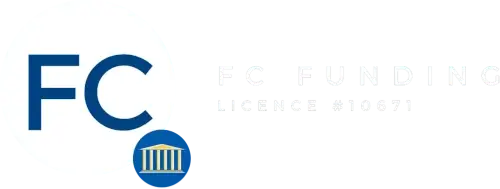A guide to choosing in 2023
Mortgage rates are at 21-year highs and an estimated 3.4 million Canadians facing mortgage renewal before 2025. So, it is no surprise that many of us are feeling anxiety about interest rates. Canadians are trying to find their footing in a world where everything seems to be getting more expensive by the day. In an effort to save precious pennies, the decision of whether to renew into a fixed or variable rate mortgage is one that feels more crucial than ever. It’s a decision that has the potential to impact a family’s financial health for years to come. Its a decision that could either cost or save you thousands of dollars in interest.
What happened with variable rates?
The Bank of Canada has made a series of interest rate hikes over the past year and a half that have brought variable mortgage rates from historical lows of 1.5% to 21-year highs of 7% and up. There is still the possibility that we haven’t seen the last of the rate hikes. However, most economist at least agree that, if we aren’t at the peak of the rate hike cycle, we are very near the top.

What about fixed rates?
Fixed rates, while not dictated by the Bank of Canada, have followed a similar trajectory. Fixed rates are tied to bond yields. As bond yields rise, so do fixed mortgage rates. And bond yields have risen steadily. Good news for the economy generally leads to increased bond yields while bad news and a poor economic outlook results in decreases. Rising bond yields throughout 2022 and 2023 were actually indicative of the surprising resiliency of the economic data.
Until recently, unemployment has remained largely unaffected by higher interest rates. Despite household’s having to manage the ever higher cost-of-living, the number of borrowers defaulting on debts has held steady at pre-pandemic levels. Despite the doom and gloom from the media, the market has, until very recently, been betting against a recession. In short, while households and media have been focused on high rates and negative sentiment, the bond market hasn’t agreed. And, as I said before, it takes bad news to bring bond yields lower.

What’s happening now?
We may be approaching somewhat of a turning point. GDP is flatlining while the Canadian population balloons. Over 1 million people were added to Canada’s population between June 2022 and July 2023. Almost four hundred` thousand jobs were created in 2023. Despite this, our output has failed to increase. Inflation continues to decrease steadily; although not at the pace the BoC would like to see. However, the full effect of an interest rate hike is not felt until 18 or even 24 months after the rate increase takes effect.
The first rate hike happened in March 2022. The most recent; only a handful of months ago. So, we are really only beginning to see the full effect of these increases work their way through the economy. Understanding that their effects will become apparent in the economic data in the coming weeks and months, many feel that further rate increases are becoming less likely. With this, the conversation is beginning to turn to when we will see rates decrease again. The Bank of Canada’s Governor, Tiff Macklem, recently acknowledged that the BoC does not need to wait until inflation has reached its target before beginning to lower its overnight rate.
There has also been a change in tides over very recent days with bond yields decreasing amidst weaker economic data. In response, several lenders have moved to decrease their published rates. As expected, fixed rates have begun to moderate ahead of rate cuts from the Bank of Canada.
As folks begin to bet on rate decreases being implemented in the coming year, variable rates have again become a topic of conversation. Only a few months ago, the mere mention of a variable rate was a non-starter.
Let’s take a look at the reasons for and against choosing a variable rate mortgage.
Pros of a variable rate mortgage
- if rates begin to decrease, you can enjoy the benefits of the lower rates without having to break your current mortgage
- variable rate mortgages historically lead to cost savings, they beat fixed rates 70-90% of the time
- variable rate mortgages have lower prepayment penalties in a decreasing interest rate environment so it will likely to less expensive to break a variable rate mortgage, if the need arises
- a variable rate mortgage can be locked in to a fixed rate at any time without penalty
Pros of a fixed rate mortgage
- your rate is locked in and can’t increase if the Bank of Canada increases rates again
- your payment remains stable at an amount that you already know is within your budget
- budgeting is easier with a payment that doesn’t fluctuate
- currently, fixed rates are lower than variable rate options
- because fixed rates are lower, they allow borrowers to be approved for larger mortgages (this will likely become an even bigger factor as fixed rates are expected to fall before the bank of Canada begins to decrease its overnight rate)
- less stress; you can “set it and forget it” until the end of your next term
What are other borrowers choosing?
Short-term fixed rates are still the popular choice amongst borrowers. But the variable rate option is becoming part of the conversation once again. Consumers are seeing a potential for savings over the long-term as interest rates decrease in the years to come. Variable rate borrowers are accepting the risk that the Bank of Canada may still have one more rate hike in their arsenal. They are also banking on savings in the final years of their term outweighing the extra they are paying now.
Short-term fixed rates
For those who can’t withstand another rate increase or who need a lower rate to qualify, shorter term fixed rates are a popular choice. A 2-3 year fixed allows a borrower to enjoy the security of a fixed rate without committing for too long. The 5-year mortgage has been the standard choice for Canadian mortgage holders for decades and generally offers the lowest rate option. However, the potential to be locking in at the height of interest rates for longer than necessary is leading borrowers to consider new options.
If your mortgage is up for renewal or you are considering buying, reach out to a mortgage professional to discuss which option best suits your situation.



